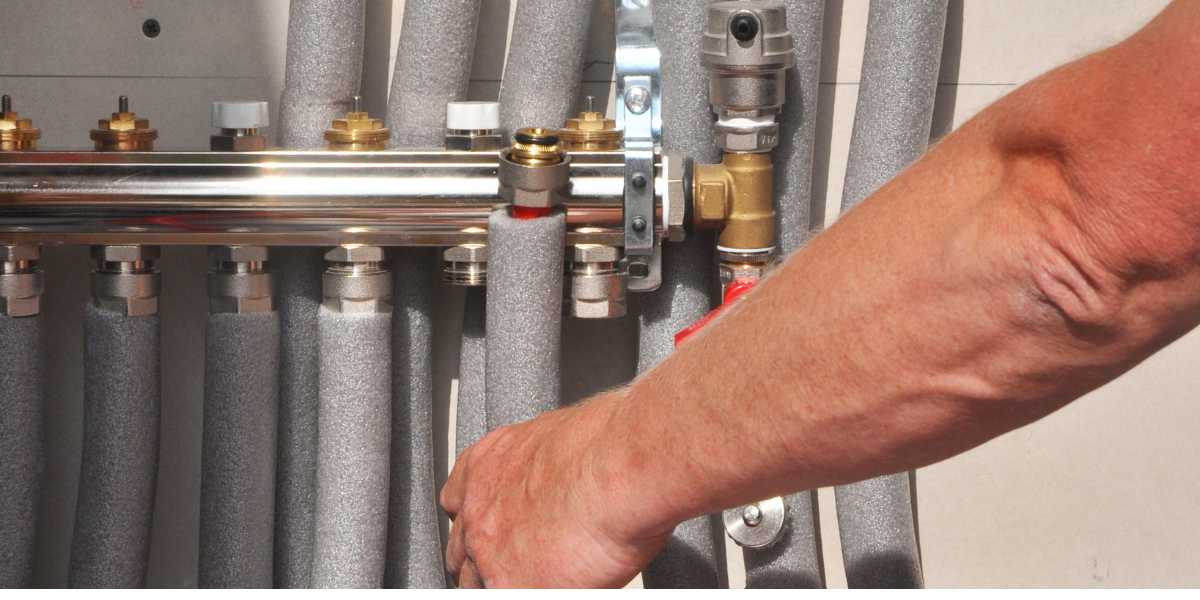Wondering if radiant floor heating can be used in a shower? Discover the benefits, installation tips, and safety considerations of adding radiant heating to your shower for a warm, spa-like experience.
Can Radiant Floor Heating Be Used in a Shower?
Radiant floor heating is increasingly popular for its energy efficiency and comfort, especially during the cold months. But what about installing radiant floor heating in your shower? The idea of stepping onto a warm floor in the shower is incredibly appealing, but you may wonder if it’s practical and safe. In this guide, we’ll explore everything you need to know about using radiant floor heating in a shower, including the benefits, installation tips, and safety considerations.
1. Understanding Radiant Floor Heating
Radiant floor heating is a system that warms floors by heating surfaces from below. Instead of blowing hot air, radiant heating relies on electric heating mats or water-filled pipes that distribute heat evenly, creating a gentle warmth that radiates through the floor. Commonly used in bathrooms, kitchens, and living areas, radiant heating is effective in spaces that benefit from consistent warmth.
2. Can Radiant Floor Heating Be Installed in a Shower?
Yes, radiant floor heating can be installed in a shower, and it’s a choice that offers comfort and luxury. Proper installation and attention to materials and safety guidelines are essential, but overall, there are no technical restrictions that prevent radiant floor heating from being used in a shower.
Homeowners should work with professional installers to ensure that all materials used in the system are waterproof, moisture-resistant, and safe for wet environments. When installed correctly, radiant floor heating in a shower can significantly enhance the showering experience.
3. Benefits of Radiant Floor Heating in a Shower
Radiant heating in the shower can be transformative. Here are some of the main advantages:
1. Warmth and Comfort
- Benefit: The most significant advantage of radiant heating in the shower is the comfort of a warm floor underfoot. During colder months, traditional shower tiles can feel icy, but radiant heating offers consistent warmth, creating a spa-like experience.
2. Enhanced Energy Efficiency
- Benefit: Radiant heating in the shower can help maintain the overall warmth of the bathroom, potentially lowering the need for additional heaters. Unlike forced air, which can waste energy due to heat loss, radiant heating transfers heat directly to the flooring surface, maximizing energy efficiency.
3. Faster Drying Times
- Benefit: Radiant heat can help the shower floor dry faster, which can be beneficial in terms of reducing mold, mildew, and bacterial growth. By keeping surfaces warm, radiant heating promotes faster evaporation, keeping the shower area cleaner.
4. Improved Aesthetic Appeal
- Benefit: Because radiant heating is embedded within the floor, it doesn’t require bulky wall or ceiling units, allowing for a clean, minimalist look in the bathroom.
5. Health Benefits
- Benefit: For those with joint pain or circulation issues, stepping onto a warm surface can be soothing and therapeutic. Radiant floor heating in the shower adds gentle warmth that can ease stiff muscles and provide an added layer of relaxation.
4. Types of Radiant Floor Heating for Showers
When considering radiant floor heating in a shower, there are two primary options:
1. Electric Radiant Heating Mats
- Description: Electric radiant floor heating systems use mats or cables installed beneath the shower flooring. These systems warm up quickly and are easy to control with a thermostat. They are also thin and unobtrusive, making them ideal for smaller spaces.
- Pros: Fast heating, easy installation, suitable for small spaces, precise temperature control.
- Cons: Higher electricity costs compared to hydronic systems if used extensively.
2. Hydronic Radiant Heating Systems
- Description: Hydronic radiant heating uses a network of tubes that circulate hot water under the floor. These systems are ideal for larger spaces and are typically more energy-efficient over time, although they require a boiler or water heater.
- Pros: Lower operating costs, excellent for whole-home or large-space heating, highly energy-efficient over time.
- Cons: Higher installation costs, more complex installation process, slower to heat up.
Both systems are effective, though electric mats tend to be more popular in showers due to their simplicity and quick warm-up times.
5. Installation Considerations for Radiant Floor Heating in a Shower
When installing radiant heating in a shower, there are several important factors to keep in mind:
1. Choosing Waterproof and Heat-Resistant Materials
- Requirement: Waterproofing is critical to prevent water damage. The installation should include waterproof mats and moisture-resistant flooring. Ceramic or porcelain tiles are commonly used, as they conduct heat well and are naturally water-resistant.
2. Ensuring Proper Insulation
- Requirement: Insulating the shower floor helps retain heat and enhances efficiency. Proper insulation ensures that the heat produced by the radiant floor system is directed upward rather than being lost into the subfloor.
3. Professional Installation
- Recommendation: Given the complexities involved, hiring a professional installer is recommended. They will ensure that the heating elements are placed correctly, insulation is adequate, and electrical connections meet safety codes.
4. Thermostat Placement and Controls
- Requirement: Installing a thermostat outside the shower area allows for easy temperature adjustments without needing to enter the shower. Programmable thermostats are useful for adjusting heat levels and saving energy.
5. Planning for Floor Height
- Consideration: Radiant floor heating adds a small amount of height to the floor. It’s essential to account for this when installing flooring to ensure a seamless and safe transition between the shower and the rest of the bathroom.
6. Safety Considerations for Radiant Floor Heating in a Shower
Safety is paramount when installing radiant floor heating in wet environments like a shower. Here are some considerations:
1. Proper Electrical Grounding
- Electric radiant heating systems must be properly grounded to prevent electrical hazards. A professional installer will ensure all connections are safe and compliant with local electrical codes.
2. Avoiding Overheating Risks
- Overheating is a risk if the system is improperly installed. High-quality thermostats with safety features help regulate temperature and prevent overheating.
3. Waterproofing
- Ensuring complete waterproofing for both electric and hydronic systems is crucial. For electric systems, waterproof membranes add a protective layer, while hydronic systems should have leak-proof piping and connections.
4. Anti-Slip Flooring
- Heated floors can be more slippery, especially in the shower. Opt for tiles or flooring with anti-slip properties to minimize the risk of falls when the floor is wet.
7. Maintenance Tips for Shower Radiant Floor Heating
Maintaining a radiant floor heating system in your shower helps extend its lifespan and keeps it operating efficiently. Here are some tips:
1. Regular Inspections
- Tip: Have your system inspected annually, especially if you’re using a hydronic system. Professionals can check for leaks, clogs, and electrical connections.
2. Monitor Thermostat Settings
- Tip: Avoid setting the thermostat to extremely high temperatures. Not only does this prevent overheating, but it also conserves energy and reduces wear on the system.
3. Clean Shower Flooring Regularly
- Tip: Keeping the shower floor clean helps the heating elements work more effectively. Clean grout and tiles to maintain optimal heat transfer.
8. Why Choose Professional Radiant Floor Heating Installation in a Shower?
Installing radiant floor heating in a shower is a complex task that requires expertise in both plumbing and electrical work. Professional installation ensures that your system is safe, efficient, and durable.
Here are reasons why choosing a professional is a smart choice:
- Expertise: Professionals understand the intricacies of waterproofing, electrical grounding, and proper insulation needed for shower environments.
- Warranty and Quality Assurance: Many professionals offer warranties on installation, giving you peace of mind that the work meets industry standards.
- Compliance with Local Codes: Professional installers ensure that your radiant heating system is compliant with local building and safety codes, which is essential for maintaining your home’s value and safety.


